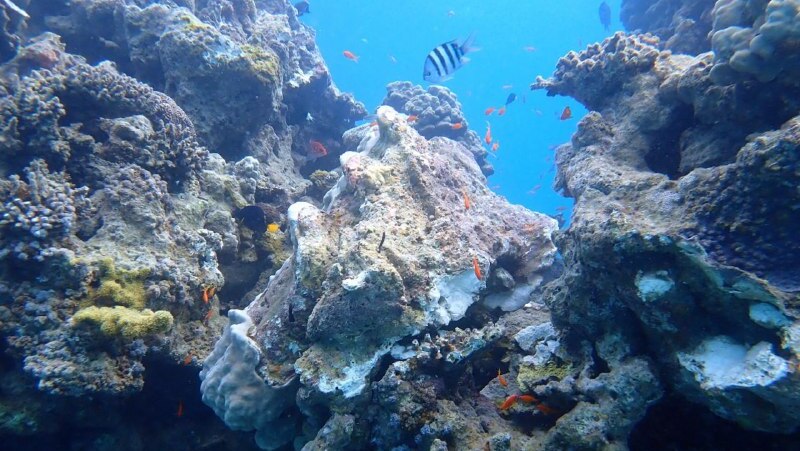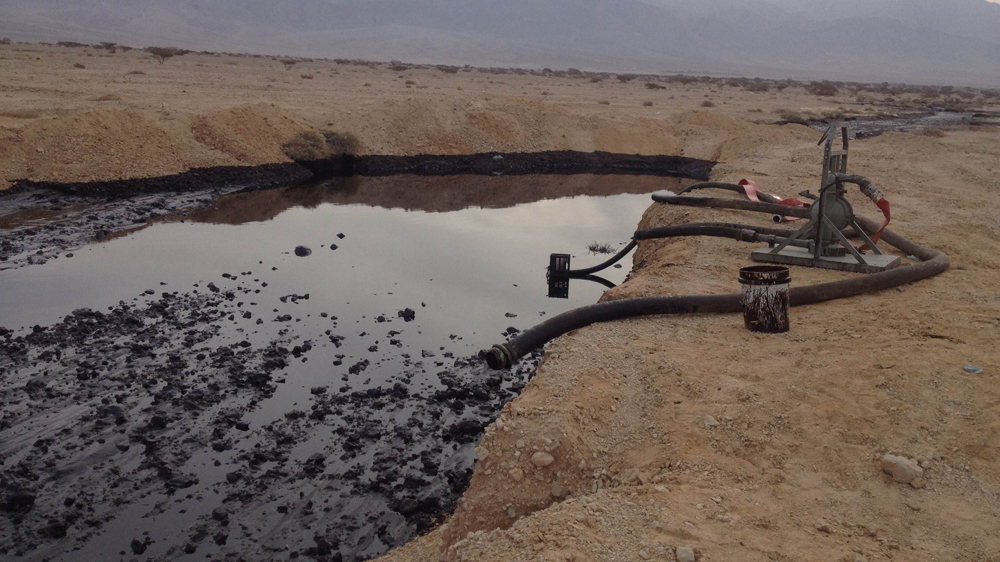A plan to transport crude oil from the Persian Gulf to Europe has put Israel’s renowned coral reefs “under severe threat,” according to environmentalists, and could also cause untold damage to the tourism industry in the region.
Israel and the United Arab Emirates recently signed a deal to bring Emirati crude oil via tanker to a pipeline in the Red Sea port city of Eilat, a popular tourist destination in southern Israel. The area is home to world-renowned coral reefs and marine wildlife.
The Europe Asia Pipeline Co. (EAPC), which is controlled by Israel, signed a memorandum of understanding in October with the UAE-based MED-RED Land Bridge to transport oil from the Gulf to Europe.
Tankers are slated to transport oil from the Persian Gulf to a terminal in Eilat. From there the oil would continue its journey via an aging overland pipeline that runs all the way to Ashkelon on the Mediterranean Sea coast. Ships would then carry the black gold to European markets.
Ahead of Earth Day, marked annually on April 22, environmentalists and scientists have cautioned against such a move and say that it could lead to devastating ecological and economic consequences.
6 View gallery
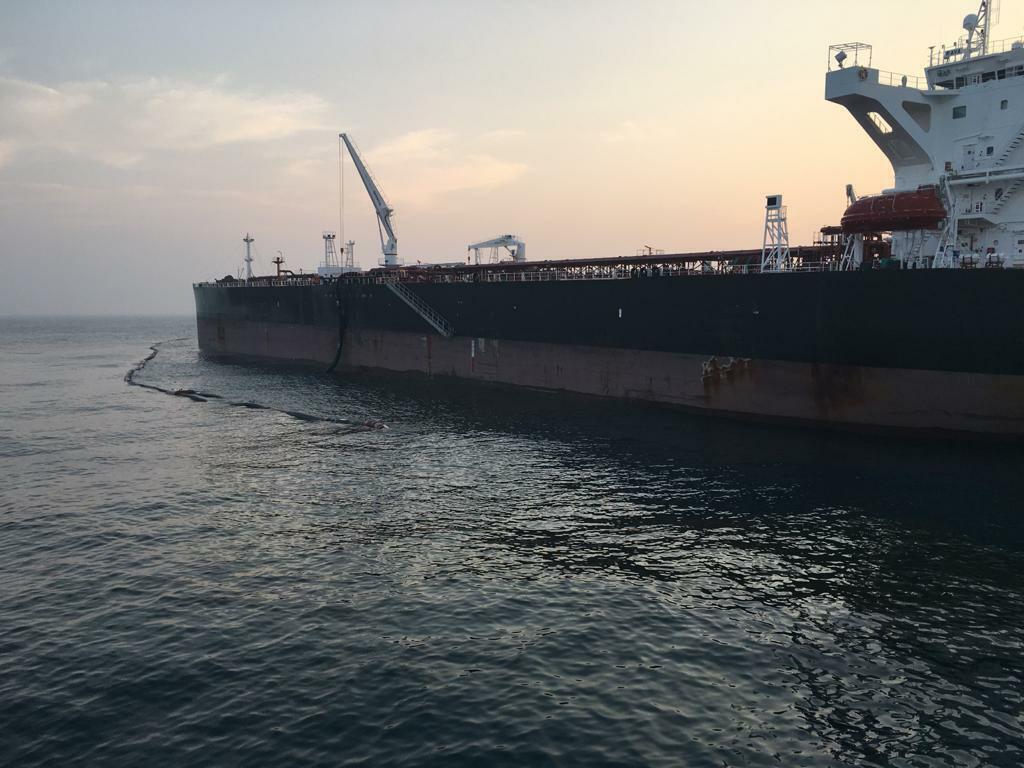

An oil tanker off the coast of Ashdod swimming in a pool of oil after a pipeline burst
(Photo: Environmental Protection Ministry)
“The Israeli government has to put a stop to this project,” Maya Jacobs, CEO of the Zalul Environmental Association, which works to protect Israel’s seas and rivers, told The Media Line. “They need to understand that the amount of money they will receive in exchange is not high enough to justify the catastrophic threat not only to the environment,” but also to Eilat, Aqaba in Jordan and Egypt’s North Sinai coast.
“These are three places that are reliant on marine tourism,” she said. “It will wipe out the hundreds of millions — if not billions — of dollars that hotels and airports have invested in favor of one project that is not being managed carefully. Everything will go down the drain.”
According to Zalul, a growing number of oil tankers have been making their way to Eilat in recent months following the Israel-UAE deal. Up to 120 tankers carrying some 7.9 billion gallons of crude oil or other oil byproducts will be permitted to use the EAPC port in Eilat on an annual basis.
6 View gallery
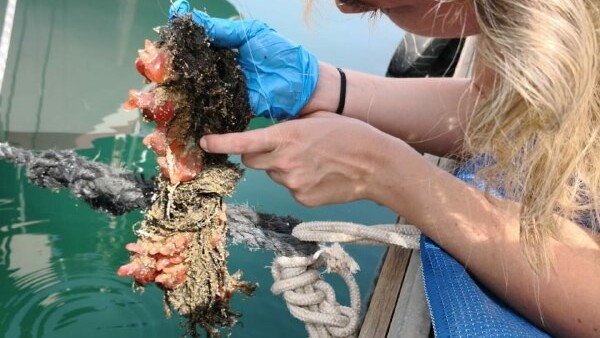

A marine invertebrate animal called Tunicata being examined after being covered in oil in the Red Sea
(Photo: Tel Aviv University)
Zalul attempted, unsuccessfully, to reach out to Egyptian representatives; however, the NGO did manage to contact officials in Jordan to discuss the pressing issue.
“Jordan agreed to speak with us and told us they were very worried about [the tankers], but because Saudi Arabia is also planning to transport oil through the Red Sea and they don’t want to fight with the Saudis, they then refused to make a public statement,” Jacobs said.
Zalul has cobbled together a coalition of 25 environmental groups to ensure the coral reefs’ preservation. The coalition is lobbying both the Israeli and the U.S. governments to prevent the oil agreement from moving forward. It also recently penned a letter to John Kerry, the US special presidential envoy for climate change, warning him of the likelihood of an oil spill disaster in the Gulf of Aqaba.
Hundreds of scientists also have spoken out against transforming Eilat into an oil hub.
6 View gallery
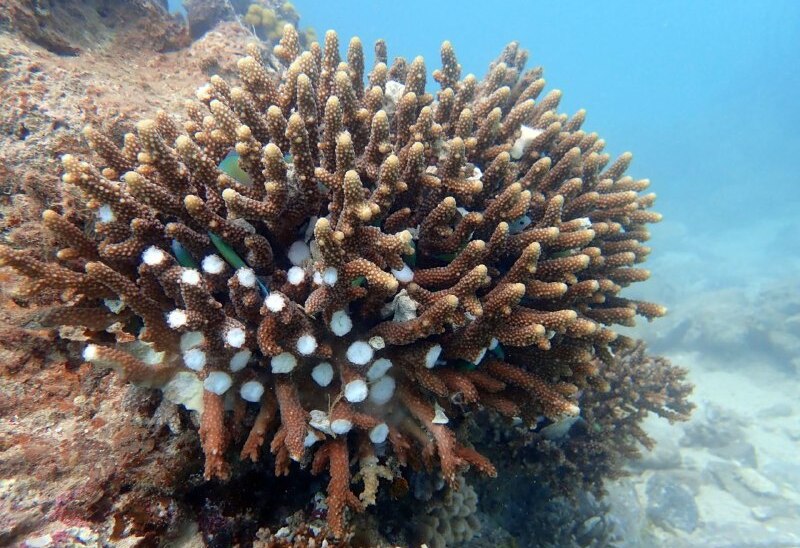

A coral reef in Eilat damaged by pollution
(Photo: Environmental Protection Ministry)
Prof. Nadav Shashar, a marine biologist who heads the Marine Biology and Biotechnology program at Ben-Gurion University of the Negev’s Eilat campus, called the plan “a very severe threat to the coral reefs.”
“In the 1970s and 1980s, Eilat experienced very severe oil pollution before the Suez Canal opened,” he told The Media Line, noting that studies later showed that, in the decades since, the reefs have yet to fully recover.
Shashar is currently leading a project for BGU to transform an old jetty into an artificial coral reef with the help of 3D-printed structures made out of clay. The team is working together with local ceramics artist Ruth Hazi to design habitats for fish.
6 View gallery
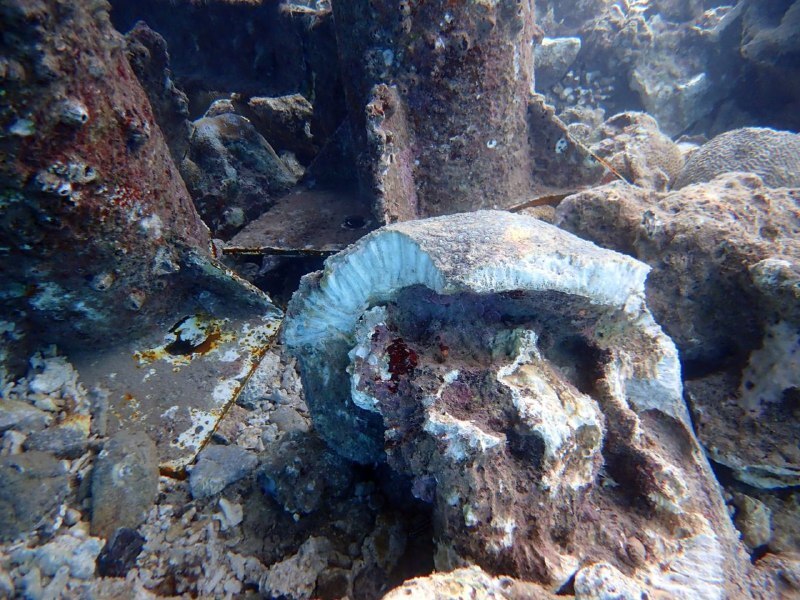

A coral reef in Eilat damaged by pollution
(Photo: Environmental Protection Ministry)
“It’s pretty sophisticated because you have to decide what kinds of structures you want to add, you do some planning and designing of the structure itself, and then you do 3D printing,” Shashar explained.
To combat reef degradation, Shashar and his team have developed various 3D-printed coral structures over the years. So far, marine animals have responded well to these innovative artificial habitats.
“Some of the structures are small but the fish go and sleep in them even if they don’t fit,” he said. “They keep on coming. So far it’s a success.”
Scientists believe that 70% to 90% of all the coral reefs around the globe will disappear by the mid-21st century as a direct result of climate change and pollution. The world is on track to warm by nearly 3 degrees Celsius, or 5.4 degrees Fahrenheit, by the end of the century, according to data from the international Climate Tracker organization.
Recent research from Bar-Ilan University’s Prof. Maoz Fine showed that coral reefs in the Northern Red Sea and the Gulf of Aqaba appear to have a higher tolerance for temperature increases in the seawater when compared with reefs in other parts of the world.
The Red Sea corals’ unique resilience could help scientists uncover new ways of preserving other distressed reefs.


